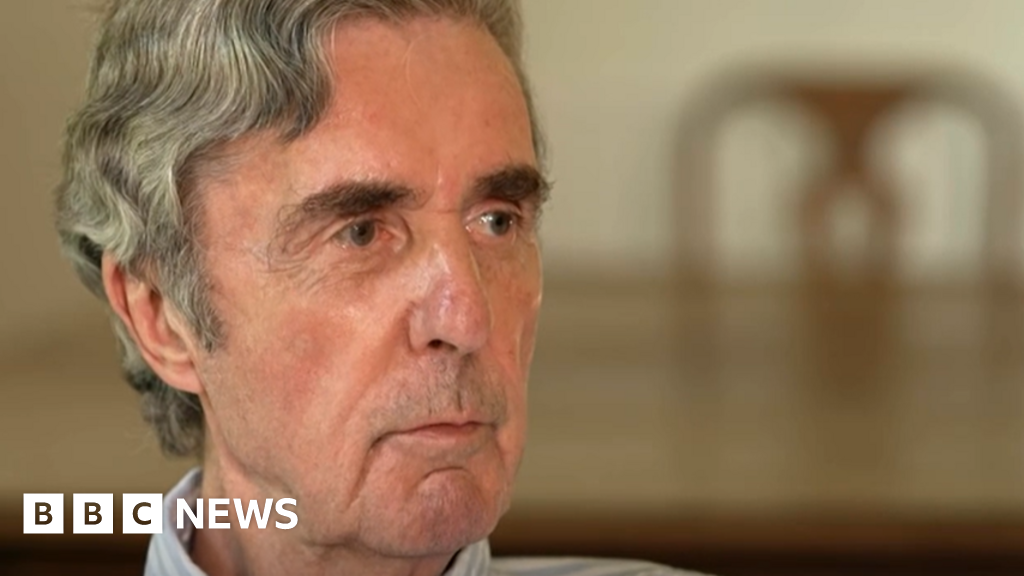Glenn CampbellScotland political editor
 Scottish government
Scottish governmentDonald Trump did not leave the UK after his two-day state visit as the toast of Scotch whisky distillers.
Despite serious lobbying by the industry body and its American equivalent, with support from the UK and Scottish governments, the US president was not persuaded to agree special trade terms for Scotland’s national drink.
The 10% tariffs or taxes that apply to most UK produce entering the US market remain. There was no movement on the higher 25% tariff on steel either.
There had been some positive signals before President Trump crossed the Atlantic to be hosted by the King.
First Minister John Swinney spent 50 minutes with the president in the Oval Office the week before the State visit, making the case for Scotch whisky.
He argued that it would be a “win-win” if zero tariffs were applied to Scotch arriving in the US in exchange for zero tariffs on US bourbon and used bourbon casks coming to the UK.
On his return to Scotland, Swinney said he felt there was a “real chance” of a deal if the UK government continued to press the argument.
Scottish Secretary Douglas Alexander insisted that whisky was “very high” on the UK’s list of trade priorities and had been part of negotiations for months.
President Trump suggested a glimmer of possibility as he prepared to fly to London, acknowledging that the UK was seeking to “refine” its trade deal with the US and that he was “into helping them”.
In the end, nothing happened. There was no mention of whisky, steel, pharmaceuticals or other UK priority products at the joint news conference Sir Keir Starmer held with President Trump at Chequers.
The president seemed to enjoy his lavish royal reception in the UK, not least the glittering state banquet held in his honour.
He seemed pleased to announce a new tech partnership between the US and the UK which promises to unlock huge investment in AI, quantum computing and nuclear power.
On tariffs, he did not budge.
 Getty Images
Getty ImagesThe UK already has a lower rate than other countries. It is 15% for EU member states.
President Trump explained his position in a Fox News interview broadcast after he boarded Air Force One for the flight home.
He described the US-UK trade agreement as a “done deal” – something that was “complete”.
Asked if he was prepared to reopen it at the request of Sir Keir Starmer, he said: “I like him, but we’re making a lot of money.”
As I understand it, the prime minister raised whisky with the president in their private discussions and talks will continue with US and UK officials meeting as early as next week.
That’s according to one normally reliable source close to the negotiations. It has not been confirmed by Downing Street.
John Swinney has said that he has had a fair hearing on the issue. He has so far avoided turning on UK ministers for any perceived lack of effort on their part.
By trying to do business with President Trump rather than boycotting the state banquet he has drawn some criticism from within the SNP.
He hopes continued engagement will pay dividends, not least elevating his own leadership status with Holyrood elections on the horizon.
 Getty Images
Getty ImagesThere are of course much bigger issues than trade to be reconciled in UK-US relations.
The two administrations appear to have agreed to disagree on how best to resolve the conflicts in the Middle East and Ukraine.
Swinney has sought to make representations on these issues too, broadly in line with the UK position.
So what does all this tell us about the relationship between the US and the UK and their respective leaders?
The prime minister (and indeed the first minister) have access to this hugely powerful and unpredictable US president.
Not every country has that.
Donald Trump’s pre-existing affection for the UK, the Royal Family and for Scotland – where his mother was born and two of his golf resorts are located – probably helps.
The afterglow of the unprecedented second state visit can hardly do harm.
Maintaining direct access is important but it does not guarantee acquiescence when trying to persuade a president whose project is to put America First.


